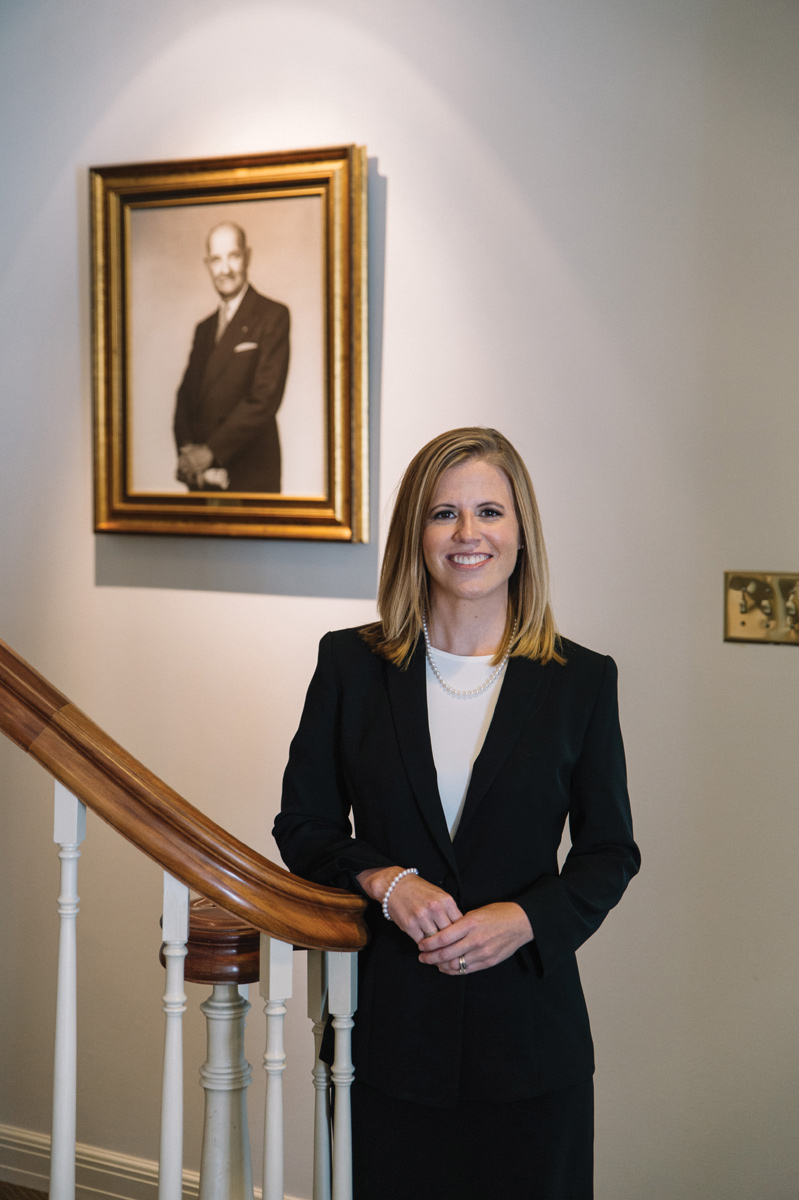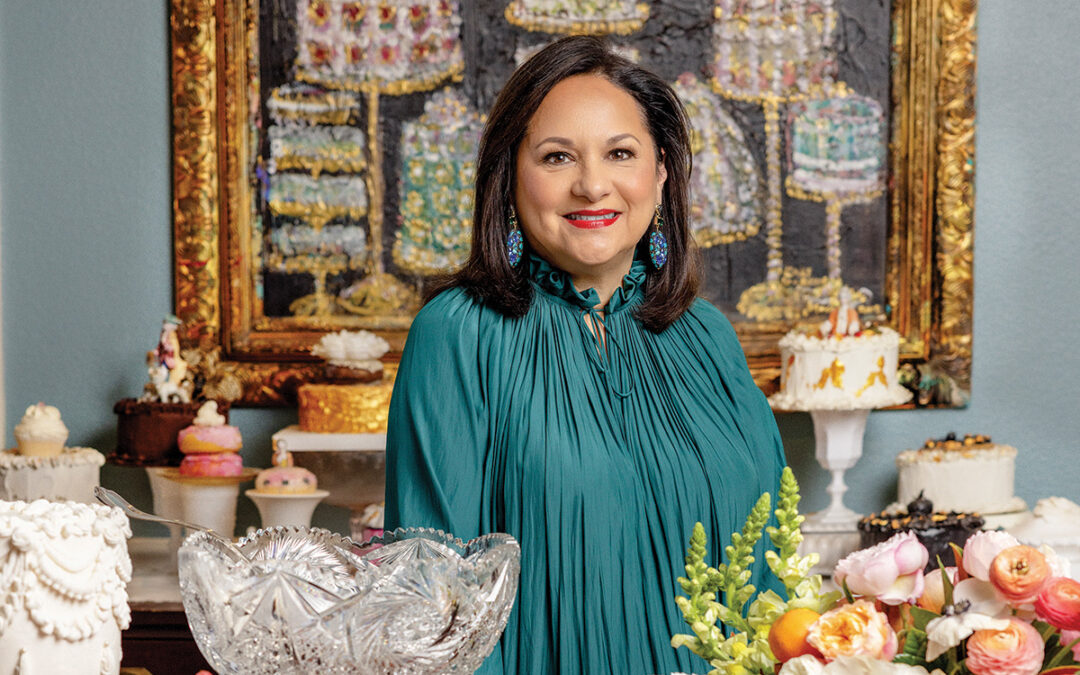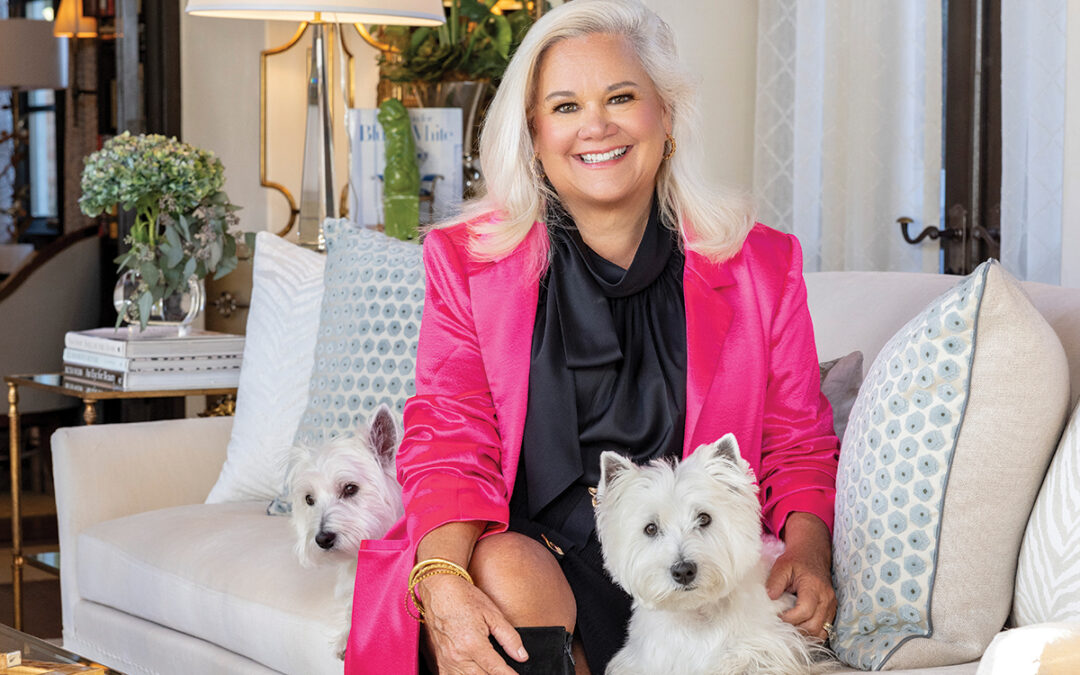When Porter Loring, Sr. decided to open a funeral home back in 1918, he spelled out his business philosophy. “It was true I was going to bury the dead, but I wasn’t going to be an undertaker,” he wrote.
“Instead, I was going to operate a mortuary – one that had respect for the dead and sympathy for the families who came to it. I was determined to have this philosophy expressed in all the ways I could create, and to ensure every one of my employees would radiate this belief in their work, language and manner of loving.”
Today, 100 years later, his great-granddaughter, Helen Loring Dear, the president of Porter Loring Mortuaries, is still guided by those same beliefs.
“I have always felt that I had big shoes to fill,” said the slim, petite Loring Dear who became president in 2015 (her father is still CEO). “Not many companies reach the 100-year mark. I am so proud of what we have been able to accomplish and of our co-workers, who have always been the foundation of our business. As the 4th generation of the family, I feel that self-imposed pressure to carry on the family’s legacy.”
At Porter Loring, the focus is always on the person who passed away and the grieving family. “We try to provide the services that they would like to have, and we treat each family as if it were the only one we are serving,” she explained. The privacy of the families is so fiercely protected that she declined to mention even in the most general terms some of the recent situations she had to handle.
Though she is the president, Loring Dear still works as one of the funeral directors who regularly meets with the grieving families to plan the services, and she is always present to supervise the proceedings and make sure that every detail is perfect for them. It’s not an easy job. “It’s very emotionally straining for us as well,” she admitted. “We want to make sure that we help them create that perfect tribute to the loved one they lost. We get to know the person who passed way through the family, and we connect with them. That’s a lot of pressure that we put on ourselves. I tell my team members it’s okay to cry. We are human.”
While the caring and respect for the dead is the same as it was 100 years ago, customs and preferences have changed over time. For instance, more people (about 40 percent) are choosing cremation over the traditional burial. Some request a “green funeral,” which may involve “different shades of green”, as Loring Dear puts it, from skipping the embalming to omitting the casket, in order to be environmentally friendly. Also, fairly common is the preference for renaming the memorial service as “a celebration of life,” to refocus the minds of mourners from sadness to celebration. If the family wishes, the service can be broadcast live on the web, as well.
Other changes she has championed include selecting caskets virtually through photographs on a large screen rather than visiting a room full of them, and, more recently, the introduction of a “funeral-home dog,” a puppy named Penelope who seems to make some people, especially children, more at ease in the funeral home. The dog is currently being trained to become a therapy animal. “Families often request her,” noted Loring Dear.
On the managerial side of her job, Loring Dear’s biggest task right now is overseeing the development of a third Porter Loring Mortuaries location near Sea World on the booming far northwest side. The company has two locations at present, on McCullough near downtown and on E. 1604.
However, Loring Dear finds herself on the forefront of change simply by virtue of being a woman. The traditionally male dominated funeral home industry has experienced a shift in the past decade or so. “There are now more females in mortuary school than males, and our staff is predominantly female,” she said. “By nature, women are more nurturing, so it’s not really surprising,”
From Housekeeper to President
Both Loring Dear and her older brother “grew up in this business.” She remembers having summer time lunches with her father and grandfather at the huge desk that is now the centerpiece of her own office. “That’s how I really got to know my grandfather, during those intimate times with them here, in the funeral home,” she noted. Both siblings started working at the mortuary as teenagers — she in housekeeping — but were never pressured by their elders to follow in their footsteps. In fact, her brother became a computer programmer and currently lives in Atlanta. Loring Dear, however, always knew that she wanted to continue the family legacy.
In college, the young woman chose to major in psychology at Millsaps College in Jackson, Miss., where she also met her husband Jonathan Dear. Her studies, and the fact that she was away from home and all things familiar, helped Loring Dear to reassess her choices and to reaffirm in her own mind that she indeed wanted to follow in her ancestors’ footsteps.
When she shared her decision with Jonathan, he reacted as most people do, she said with a laugh. “When people find out what I do, they either stop talking to me or they start asking a lot of questions.” Jonathan was obviously okay with it, since the couple tied the knot in 2007 and settled down in San Antonio. Jonathan started a monument company for Porter Loring, but, when his wife became president, he decided to step down to separate their work and personal life.
The monument company officially closed in 2017. He is currently the primary stay-at-home parent for their two kids and “the anchor” of the family. “He loves it, for the time being,” said Loring Dear. “He is our chef at home, and I know he would like to open his own restaurants someday.” Due to the nature of her job, her schedule can be quite unpredictable, and she may have to cancel whatever was planned — a family outing, for instance — to show up at the office. It’s good to know that Daddy is home with their children. Though she’s doing what she loves, she often felt and still feels that coming in as the boss’ daughter put a special responsibility on her shoulders to prove herself. Following college, she attended mortuary school at San Antonio College and later got certified as both a funeral director and an embalmer.
In addition to funeral services, the company provides free grief support as well as educational bereavement resources for the community beyond their walls. Every year, they also sponsor conferences and trainings on various themes for professionals who deal with loss and related topics.
Since Porter Loring is a member of the Selected Independent Funeral Homes Association, an international group of family-owned mortuaries, Loring Dear signed up for the organization’s Leadership Academy in 2014, which eventually spurred her to deal with an unusually high suicide rate among her families and in the city as a whole.
With other local organizations, she organized a roundtable discussion on the issue, ultimately resulting in the creation of the Alamo Area Teen Suicide Prevention Coalition. She has been an honorary chair ever since. With all her experience in dealing with death, what advice does she have for people who suffer a loss?
By Jasmina Wellinghoff
Photography by David Teran












I worked for Porter Loring Mortuary from 1975 to 1981 as a funeral director and embalmer. I left when I got my degree from UTSA and passed my CPA boards. The staff and family helped me when I went through a tragic death in my family. This is something you never forget. Porter Loring organization is top notch, caring and a leader in the funeral industry.